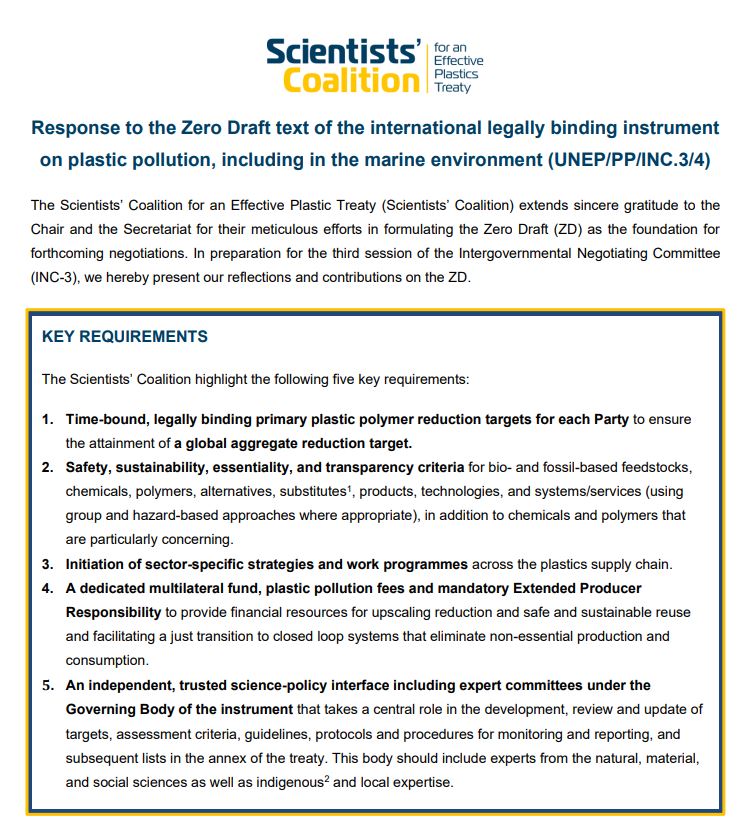Press release: Global network of independent scientists publish response aimed at strengthening future United Nations treaty to end plastic pollution
The Scientists’ Coalition for an Effective Plastics Treaty has prepared a response to the zero draft text of the legally binding instrument to end plastic pollution, offering science-based reflections to support the third intergovernmental negotiations committee (INC-3), which kicks off in Nairobi, Kenya, next week.

The Scientists’ Coalition for an Effective Plastics Treaty has prepared a response to the zero draft text of the legally binding instrument to end plastic pollution. (Source: Zero Draft Response – Ikhapp)
The scientists consider the zero draft text as a promising starting point for developing an ambitious treaty that can achieve the objectives of ending plastic pollution and protecting humans and the environment. They urge member states to consider prioritising the following aspects within the forthcoming negotiations:
Time-bound, legally binding primary plastic polymer reduction targets
The Scientists’ Coalition sees value in the new instrument implementing time-bound, legally binding reduction targets for primary plastic polymers.
Defining safety, sustainability, essentiality, and transparency criteria
The creation of specific criteria for safety, sustainability, essentiality, and transparency for bio- and fossil-based feedstocks, chemicals, polymers, alternatives, substitutes, products, technologies and systems/services is strongly recommended by the scientists.
Sector-specific strategies and work programmes across the plastics supply chain
The Scientists Coalition encourages the development of sector-specific approaches and dedicated sectoral strategies and work programmes for each major industrial and economic sector across the plastics value chain.
A dedicated multilateral fund, plastic pollution fees, and mandatory Extended Producer Responsibility
It also underlines the need for a dedicated multilateral fund, for plastic pollution fees, and for mandatory extended producer responsibility to fund reduction, safe and sustainable reuse, and a just transition.
An independent science-policy interface
The establishment of an independent, trusted science-policy interface (SPI) including expert committees under the Governing Body of the instrument is essential to develop, review, and update targets, assessment criteria, guidelines, protocols and procedures for monitoring and reporting. The SPI should include experts from natural, material, and social sciences, as well as indigenous and local knowledge-holders.
About the Scientists’ Coalition
Representing over 300 independent scientists across 50+ countries, the Scientists’ Coalition will be available on the ground in Nairobi to engage in conversations around how the treaty can be anchored in robust evidence-based decision-making and the precautionary principle. Check out the Scientists’ Coalition’s Linktree page for an overview of its free resources including easy-to-read policy briefs and fact sheets. There is also a contact form to get in touch with its scientists to help answer stakeholder questions before, during, and after INC meetings.
The full response to the zero draft document with all of the scientists’ input can be found on the Scientists’ Coalition’s website.
Contact: scientists.coalition@ikhapp.org